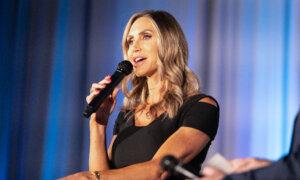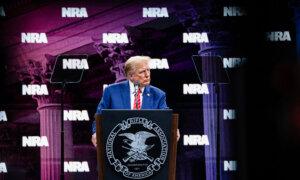President Trump has not confirmed he will testify.
As the defense tries to keep prosecutors guessing about whether former President Donald Trump will take the witness stand to defend himself in his criminal trial in New York, New York Supreme Court Justice Juan Merchan has instructed the parties to prepare for the upcoming week assuming the testimony may not happen.
“Please be prepared to begin summations on Tuesday,” the judge told attorneys last Friday.
On Friday, prosecutors confirmed they would call no more witnesses. Ex-lawyer Michael Cohen will return to the witness exam to wrap up questioning by defense and prosecuting attorneys, and defense lawyers said in court Friday they plan to call a handful of rebuttal witnesses, including experts, whose limited testimonies may be wrapped up within a day.
“I was not speaking to President Trump, obviously. That’s another decision that we need to think through,” defense attorney Todd Blanche added.
But President Trump has not confirmed he will testify.
Before the start of trial, President Trump had said in multiple public statements that he was willing to testify in any of his criminal trials because he had done nothing wrong. He said the same in responding to a reporter near the start of his criminal trial in New York.
But halfway through the trial, President Trump suggested he would not be allowed to testify due to his gag order, prompting the judge to clarify in court that President Trump had the “absolute right” to testify if he wishes. President Trump similarly clarified to the press he was allowed to testify, but has since declined to answer whether he will.
Recent Trump Testimonies
In President Trump’s civil fraud cast in New York last fall, he took the witness stand for a lengthy testimony. State attorneys found him a difficult witness to cross-examine, as President Trump often gave long, descriptive responses extolling the virtues of his various properties when asked simple questions about certain property valuations.
The trial court judge reprimanded prosecutors at first, saying they should ask more direct questions, but soon lost his patience with President Trump as well. He ordered defense attorneys to “control your client” and President Trump’s testimony only became more expansive from there. By the end of his testimony, he was echoing remarks he tended to make outside the courtroom, arguing the case was election interference brought by his political opponents, and criticizing the judge and attorney general for their participation.
In January, President Trump went to trial in another civil case, brought by writer E. Jean Carroll alleging defamation. President Trump said at a press conference that his attorneys in the first case brought by Ms. Carroll had advised him not to attend or testify as it would be “beneath” him, and claimed the judge was extremely “hostile” in his absence.
The federal judge, who had warned President Trump he would be excluded from the trial if he continued to comment, set strict limitations on what President Trump would be allowed to cover before allowing him on the witness stand. He ruled that since a previous case brought by Ms. Carroll had already determined President Trump was liable for defamation and sexual battery, President Trump would not be allowed to dispute claims of defamation and sexual assault.
If President Trump takes the witness stand in his criminal case, prosecutors have stated they plan to ask President Trump about his civil case verdicts that found him liable for fraud and defamation, as well as his repeated violation of a gag order. Justice Merchan limited prosecutors from eliciting testimony about the sexual battery verdict or a lawsuit President Trump filed against Hillary Clinton which a judge dismissed as “frivolous.”
Prosecutors have said they will make President Trump’s credibility as a witness the center of the case if he decides to take the witness stand.
As it stands, Mr. Cohen’s testimony has formed the foundation of the case so far, as the only prosecution witness who has shared personal knowledge of President Trump’s knowledge and involvement in Mr. Cohen’s $130,000 payment to adult actress Stephanie Clifford (Stormy Daniels) for the exclusive rights to her story about an alleged affair. Other witnesses had testifies that President Trump indeed reviewed and signed these checks, but could not speak to his motives.
Prosecutors allege that the 11 checks cut to Mr. Cohen and their corresponding invoices and vouchers, which constitute the 34 falsified business records, where created to cover up a payment meant to influence the 2016 presidential election. They are alleging President Trump was part of a conspiracy to influence a federal election, which would increase the falsified records charges from misdemeanors to felonies. This is a novel legal theory, and the verdict may turn on the judge’s interpretation of several laws together.
Before the jury deliberates, Justice Merchan will hold a charge conference, and advise jurors on the correct interpretation of the law, and make sure all jurors understand the legal issues at hand.
With reporting by Michael Washburn.
Original News Source Link – Epoch Times
Running For Office? Conservative Campaign Consulting – Election Day Strategies!


